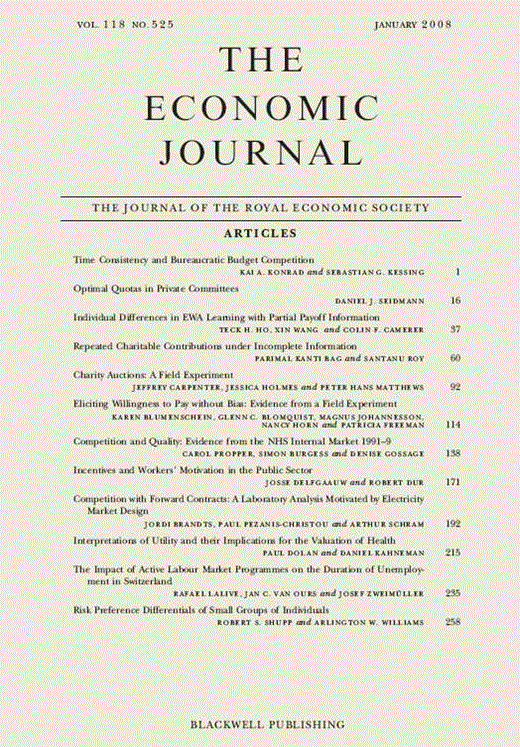-
Views
-
Cite
Cite
Paul Dolan, Daniel Kahneman, Interpretations of Utility and Their Implications for the Valuation of Health, The Economic Journal, Volume 118, Issue 525, 1 January 2008, Pages 215–234, https://doi.org/10.1111/j.1468-0297.2007.02110.x
Close - Share Icon Share
Abstract
The term ‘utility’ can be interpreted in terms of the hedonic experience of an outcome (experienced utility) or in terms of the preference or desire for that outcome (decision utility). It is this second interpretation that lies at the heart of the methods that economists have developed to value non‐market goods, such as health. In this article, we argue that decision utility is unlikely to generate meaningful data on the utility associated with different experiences, and instead economists should look towards developing measures that focus more directly on experienced utility.





